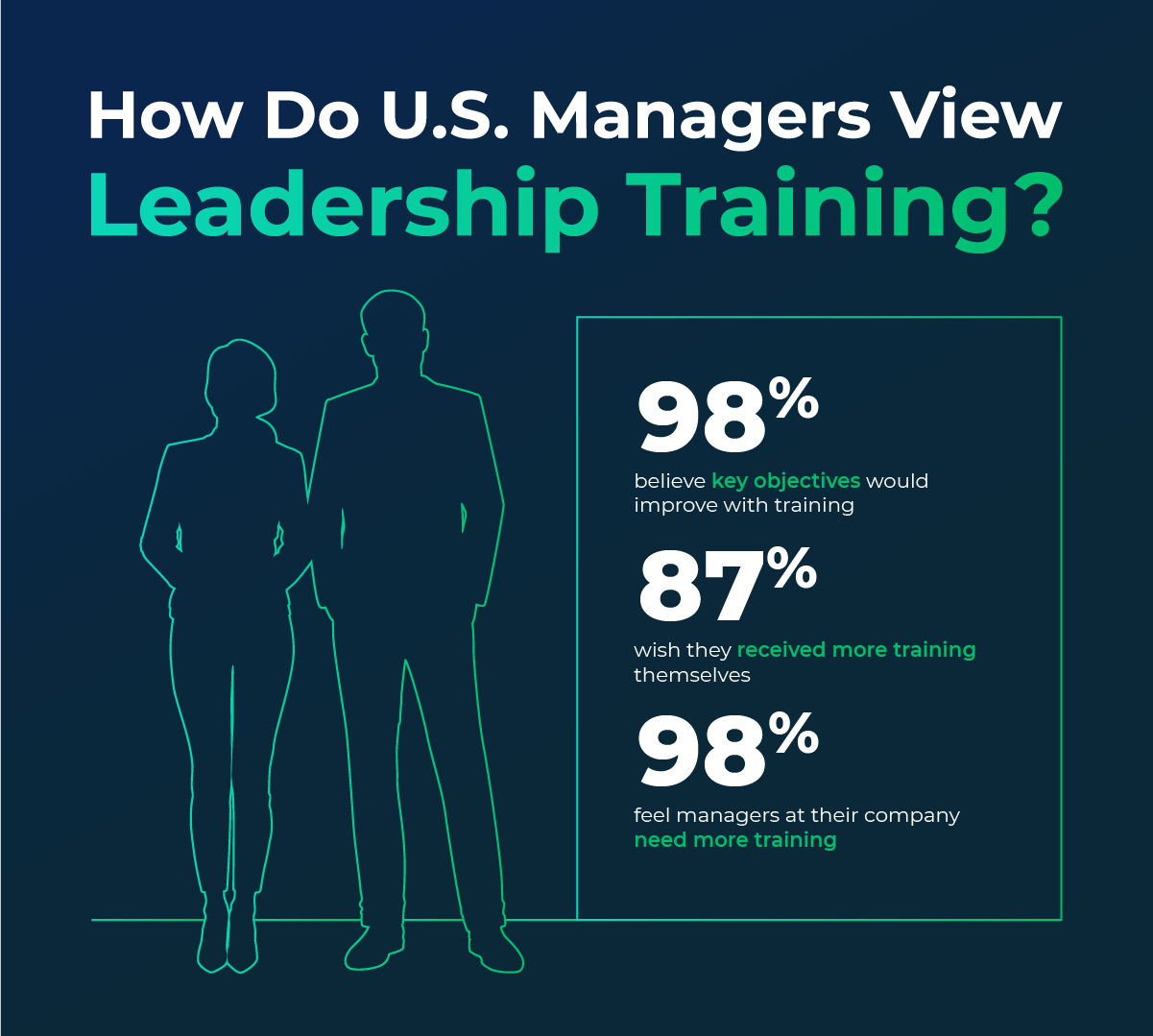7 Essential Leadership Skills for Managers in Today’s Workplace

Nearly everyone who’s worked for any significant length of time has taken issue with their boss at some point or another. The experience is so universal, in fact, that the concept of a troublesome manager has led to one Hollywood comedy after another.
While conflicts with managers may be great on-screen for getting laughs, poor management is disastrous for the bottom line. In fact, according to Gallup, it costs $7 billion a year globally—9-10% of the world’s GDP.
Why Leadership Skills for Managers Are Important
On a company-by-company basis, many of the costs of ineffective leaders are intangible. For instance, how can you measure the revenue your company might have achieved if only your managers were better strategic thinkers, or the kind of mentors who drew out hidden talent?
Other costs are easier to measure. In surveys of employee engagement, employees’ perceptions of their managers rise to the top as a major influencer, responsible for up to 70% of the difference in engagement rates between business units. And since engagement influences everything from productivity to turnover rates, that’s a figure companies should pay attention to.

Nevertheless, few companies give their management practices the attention they deserve. Grovo found that a shocking 98% of managers feel managers at their companies need more training on everything from strategic thinking to conflict resolution; 87% of them reported they wished they had received more leadership training themselves. Perhaps most significantly, 98% of respondents also said they believed KPIs like employee retention and revenue would improve with increased training.
Important Leadership Skills for Managers
While there are many ways to improve your people management skills, the first step is to identify which areas need improvement. Which skills will have the biggest impact on the bottom line? While technical skills are key for individual contributors, success as a leader tends to require a solid set of soft skills as well.
Here are seven key leadership skills for managers in today’s workforce. You can use this manager skills list as you weigh upskilling needs for your organization or advance professionally on your own.
1. Emotional Intelligence
Emotional intelligence—the ability to understand and control one’s own emotions, read and react appropriately to others’ emotions, and manage relationships—may sound simple. But according to Harvard Business Review, it accounts for nearly 90% of what makes high performers stand out.
2. Communication Skills
Strong leaders can effectively communicate their vision to both their team and those above them. But more than that, they must be able to adjust and tailor their communications appropriately for a wide array of situations and people, often across cultural and generational lines.
3. Delegation
No one can do it all. Managers who struggle to delegate are likely to have a difficult time meeting their department’s productivity goals and delivering the highest-quality work. But more than that, they can also discourage their employees. Effective managers identify the right team member to handle a specific task and ensure they have the knowledge and tools they need to get the job done.
4. Motivating Others
A motivated team is a productive team. But the drivers of motivation are highly personal. Capable managers are able to identify what motivates each member of their team—whether that’s opportunities for growth or simple recognition—and use that knowledge to keep them enthusiastic about that work. They also understand that treating employees with respect and fairness is a powerful motivator in and of itself.
5. Strategic Thinking
Today’s marketplace is shifting rapidly, from consumer demand to technology. Managers need to be able to see the big picture and think strategically to lead their teams to success. In this context, strategic thinking includes the ability to assess a situation, set realistic goals, and develop a plan to reach them. Strategic thinkers can adapt to changing circumstances and communicate their importance to their team and their own leadership.
6. Integrity
No one likes being treated unfairly, and employees who feel they are not respected by their manager or that they cannot trust their manager are likely to quickly disengage. Leaders who act with integrity, on the other hand, prioritize fairness and honesty, creating an environment of trust within their team.
7. Flexibility
As the pandemic has demonstrated, unexpected conditions can change the way we work at any time. Strong leaders can quickly assess new challenges and pivot as needed, even when it’s uncomfortable. Flexible managers understand that work and processes can always be improved, and don’t hang onto certain ways of doing things just for the sake of it.
Great leadership depends on a complex interplay of manager skills and circumstances, but it does not emerge on its own. Companies looking to improve their bottom line and build employee engagement should look first at how they train their managers. If they aren’t providing thorough leadership training and support to new and existing managers, they’re missing a key opportunity to improve company culture across the board.
Emeritus offers comprehensive programs designed to build leadership skills for managers in areas from strategic thinking to managing a global, mobile workforce. Learn more about how our Enterprise team provides comprehensive support to organizations ready to up-level their management teams.
You can also view our online leadership courses for individual enrollment.


